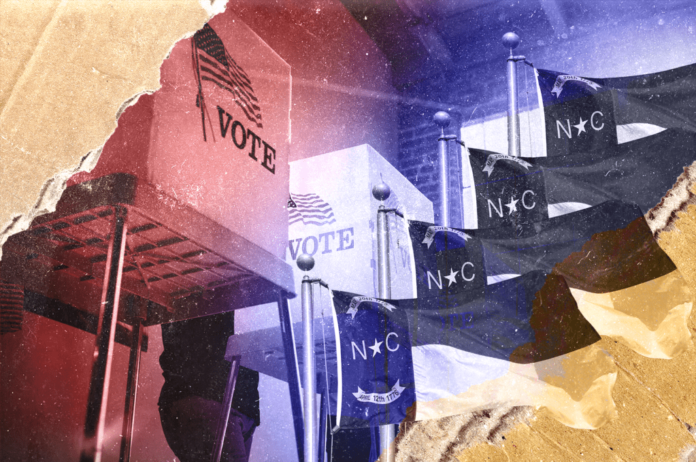Regardless of the election results, North Carolina will have a new Governor, Lt. Governor, Attorney General, Treasurer, and State Superintendent of Public Instruction in January.
And, every single state senator and representative is up for re-election this year.
This is among the many other very important races, including judgeships, county commissioners, and local school board members to name a few.
Local public schools are on the ballot.
— Mary Ann Wolf
With this election, North Carolinians have the opportunity to vote to support their local public schools that serve more than 75 percent of children in North Carolina through all of the roles listed above. Our local public schools prepare children for life, and we have many options that give students a competitive advantage on what they want to pursue in college and career. In our local public schools, dedicated educators show up for their kids, and for each other every single day. Our local public schools remain vital to community resilience.
This is why the singular bias of the Public School Forum of North Carolina remains that there is fundamental value in public education and the central role it plays in our society. Public education exists so that every person in this country has access to the basic tools needed for personal success and civic engagement.
We know that North Carolinians also care deeply about their local public schools:
- 83% of North Carolinians believe that public school teachers should be paid more.
- 71% of North Carolinians believe that investing more in public schools will do more to improve education in NC than investing in vouchers.
Our current state investment in education does not match the beliefs of North Carolinians.
Currently, North Carolina is at the top of the country in business but currently sits at 48th in the country for per pupil expenditure and at the very bottom of the nation as a % of the GDP. And lawmakers have recently voted to send hundreds of millions of taxpayer dollars to private schools that serve only a few and are unaccountable to the public, rather than investing more in our local public schools that serve the vast majority of North Carolina’s children. It does not have to be that way, and North Carolinians have spoken up that they don’t want to be at the bottom for investment in education.
Our elected officials will have the opportunity to respond to what North Carolinians care about and move quickly to increase resources and support for local public schools. The North Carolina General Assembly will have a particularly significant influence over local public schools as education policy and funding decisions remain largely in the hands of our state legislators, so we recommend voters visit ncforum.org/candidatesurvey to learn more about where each General Assembly candidate stands on education issues before casting their ballot.
Our next North Carolina Superintendent of Public Instruction will also have a profound and lasting impact on our local public schools. In October, we hosted a debate between this year’s candidates for North Carolina Superintendent of Public Instruction, Mo Green and Michele Morrow. It is evident that each candidate has a very different vision for North Carolina’s public schools if elected. We encourage voters to watch the full debate to learn more about the superintendent candidates and share what you learn with other members of your community.
As a state, we have significant work and opportunities ahead to continue to ensure our local public schools make it possible for every child in North Carolina to succeed in life. Nearly every race that impacts our local public schools is on the ballot this year. This election year, let’s vote for what is best for our children, our communities, and our state’s future.
